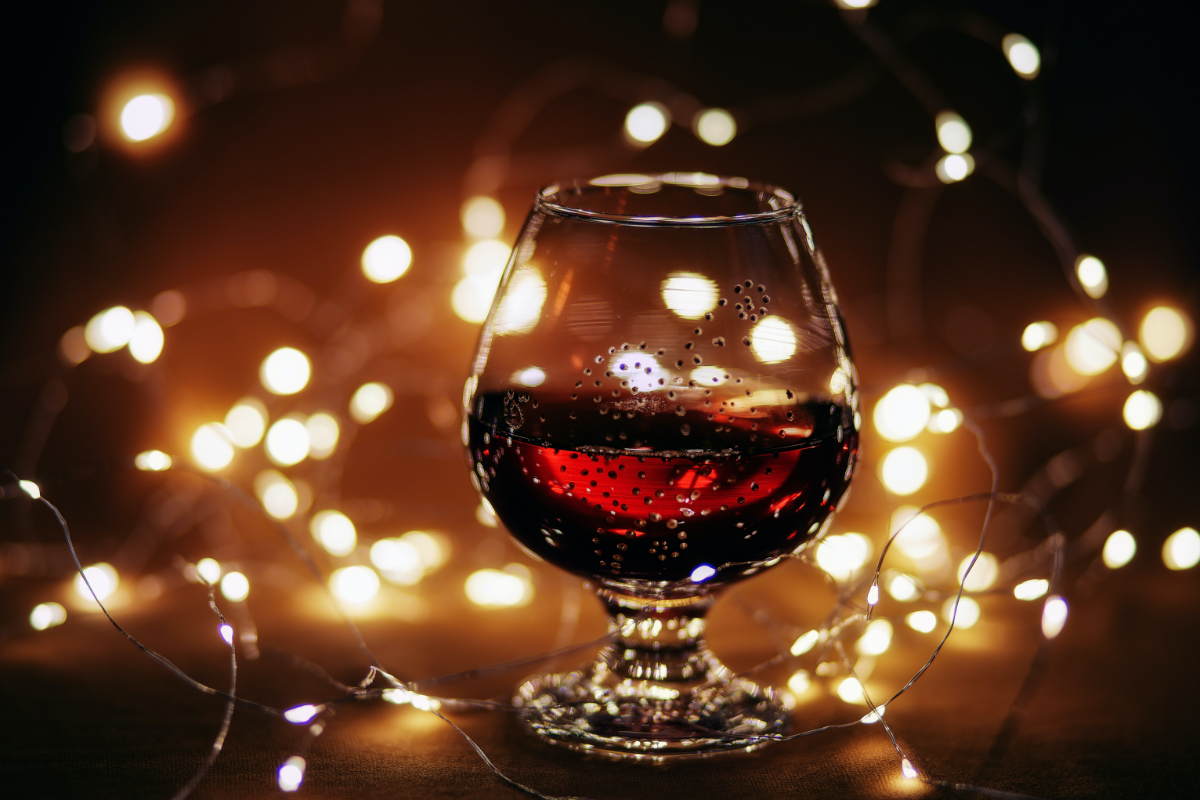The World Health Organization has declared that there is no safe level of drinking—a zero-tolerance, just-say-no approach to alcohol. Public Health has simply dressed Temperance in scientific-seeming garb. And 2020 has brought a new wave of hand-wringing about our increased drinking during the pandemic.
Meanwhile, New York Times columnist Jennifer Finney Boylan, like many of us, reminisced poignantly about time gone by this holiday season:
I am thinking about the things we have lost this year: over a quarter of a million dead in this country, lives upended and destroyed. And the small things too: the closeness of friends, a pint in a pub, a stranger’s handshake …
The old clock chimes. I remember that sound from my grandmother’s apartment, back when I went to visit her after school. She used to make me frozen pizza. Later, after a certain number of martinis, she’d always ask, “Have I ever told you the story of the night your father was conceived?” …
My daughter was home for Thanksgiving. On the night before she left, we all fell to singing songs. The last tune my child sang that night was “The Parting Glass.” “So fill to me the parting glass, and drink a health what’ere befalls; I’ll gently rise and softly call. Good night and joy be with you all.”
Notice how alcohol rears its head in every anecdote? Hasn’t Boylan gotten the message that drinking is unhealthy and dangerous, and destroys families?
But she’s not the most prominent or culpable writer in this regard. Remember how Dickens’ A Christmas Carol ends? Scrooge visits his clerk Bob Cratchit’s happy family at their Christmas dinner, when Cratchit breaks out his famous punch.
The compound in the jug being tasted, and considered perfect, apples and oranges were put upon the table, and a shovel-full of chestnuts on the fire. Then all the Cratchit family drew round the hearth … At Bob Cratchit’s elbow stood the family display of glass. Two tumblers, and a custard-cup without a handle. These held the hot stuff from the jug, however, as well as golden goblets would have done; and Bob served it out with beaming looks. [My italics.]
Cratchit raises a glass, and Tiny Tim echoes his toast: “God bless us every one!”
Are they teaching poor Tiny Tim to consume alcohol—at Christmas yet?
Life across the ages, particularly spiritual or festive life, is imbued with alcohol—an accompaniment to both good times (Christmas, Chanukah, weddings, New Year’s Eve, toasting a newborn or a Briss) and bad (wakes, seeking solace after a breakup, dealing with a haunted house à la Poltergeist, quarantine).
That ethanol has always been a part of humanity is the conclusion of “the spiritual archeologist,” who says “alcohol and human evolution are interrelated.” University of Pennsylvania Museum bio-archeologist Patrick McGovern—in Uncorking the Past: The Quest for Wine, Beer, and Other Alcoholic Beverages—concluded that alcohol was a central presence in every seat of civilization. Exceptions, such as those in the Muslim world, represent relatively new impositions that are far from universally observed.
Brewing dates from the beginning of civilization in ancient Egypt, and beer and wine were offered to the gods, according to Iain Gately’s Drink: A Cultural History of Alcohol. Beer and wine were likewise central to Babylonian civilization, and wine goddesses were worshipped. The Code of Hammurabi deals with alcohol, but never mentions drunkenness. Ritual, apparently, encourages moderation. Early Middle-Eastern scientists used distillation extensively. They spread the process to Europe, according to Ahmad Yousef Al-Hassan, an historian of Arabic and Islamic science.
Anyone would think that addiction is overwhelmingly a socio-cultural phenomenon, rather than tied up in the inherent properties of substances.
Beer and wine have also been drunk by Indigenous populations throughout Africa and the New World, as described in MacAndrew and Edgerton’s classic work, Drunken Comportment. Dwight Heath, the premier anthropologist of alcohol use, experienced drinking a distilled spirit with the Camba people of Columbia. The Camba drank copiously, Heath reported, but without problems. Malcolm Gladwell described this process in the New Yorker:
Every weekend and holiday the Heaths went to a party where guests sat in a circle drinking a strong local rum from Saturday night until Monday morning, when they went to work. People regularly passed out at the party, awoke and started drinking again.
Nonetheless, Heath told Gladwell:
There was no social pathology—none. No arguments, no disputes, no sexual aggression, no verbal aggression. There was pleasant conversation or silence. The drinking didn’t interfere with work. And there was no alcoholism.
Similarly, Southern Europe, where wine is typically shared by all generations at meals, experiences far fewer alcohol harms than Northern Europe or the States, where adolescent binging sessions form most people’s introduction to drinking.
Anyone would think that addiction is overwhelmingly a socio-cultural phenomenon, rather than tied up in the inherent properties of substances—and that those concerned with public health should be engaged not with the futile attempt to remove drugs from our lives, but with encouraging skilled, positive drug use. As the subtitle of Gladwell’s New Yorker piece summarizes this perspective: “How much people drink may matter less than how they drink it.”
I have long argued that data show—despite the existence of plenty of real harms associated with alcohol—that its net, population-level health effect is often beneficial, depending on the context of its consumption. But its benefits to our cultural and social bonds go so much further.
As such, stripping away alcohol from our human narrative would represent a fundamental loss to our species. Fortunately, no such thing will happen.
On a personal seasonal note, I enjoyed my family’s Zoom Chanukah this year with a prayer I taught my kids and grandkids—one that long precedes me into the dawn of Judaism.
Barukh ata Adonai, Eloheinu Melekh ha-olam, borei peri hagafen.
Blessed are You, God, Ruler of the universe, who creates the fruit of the vine.




